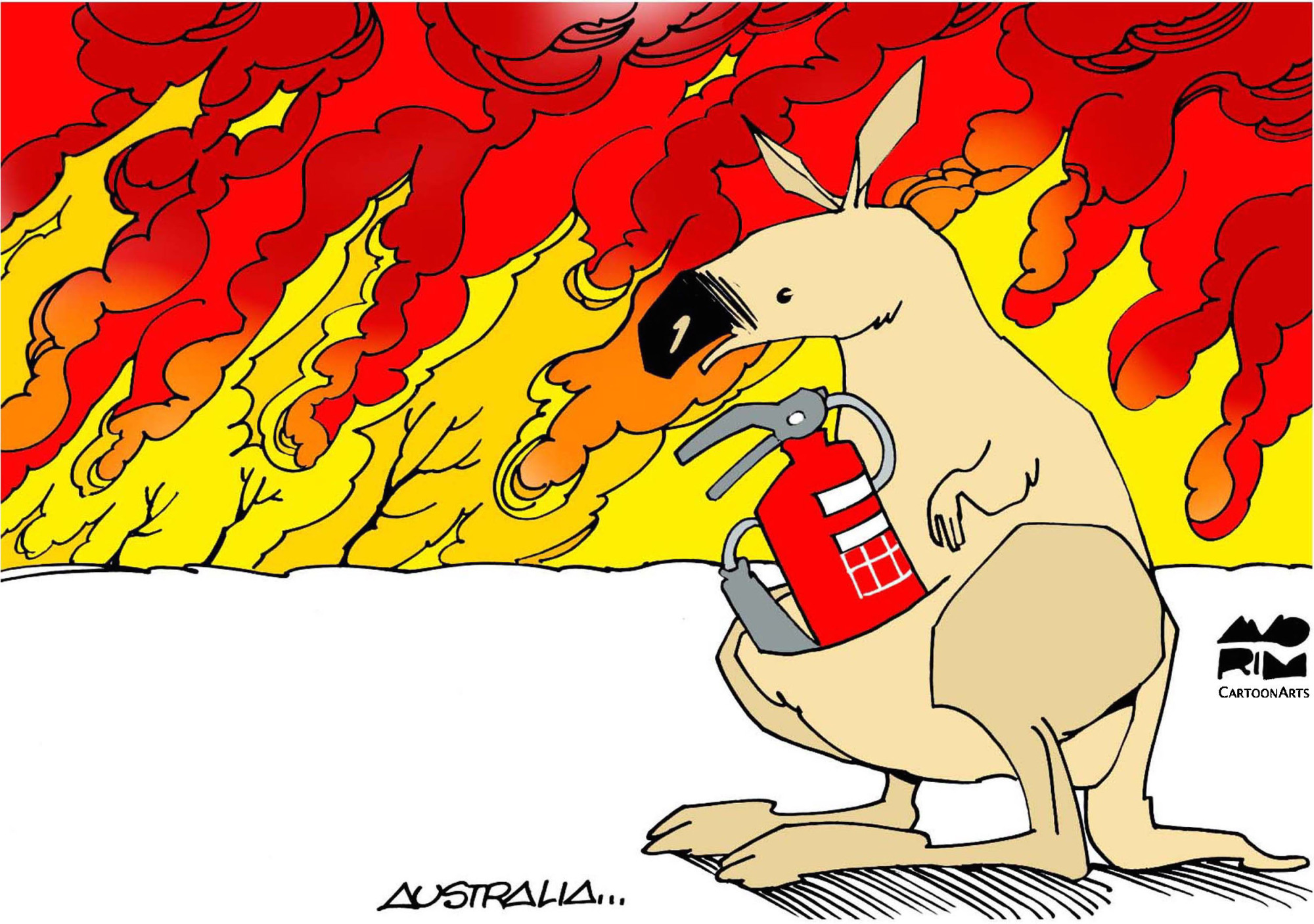Owing to the smoke from nearby wildfires, Canberra this month has had the world's worst air-quality index, with readings 20 times above the official hazardous threshold. The city also recently experienced its hottest day on record (44 Celsius). Meanwhile, Delhi had its coldest December day on record. Both are evidence of growing climate volatility, confirming the reality of global warming.
In assigning blame for the fires, however, some critics — including the editorial board of the Financial Times — have lazily pointed a finger at climate denialism. Australian Prime Minister Scott Morrison has been criticized vehemently for his slowness to help fire-ravaged communities.
Anger on the part of bushfire victims is understandable. But much of the broader criticism is misplaced and reveals a willful ignorance of Australia's long history with bushfires. Those who have rushed to condemn Morrison's government have downplayed the failings of state governments, some of which are alleged to have prioritized the transition to renewable energy over prudent forest-management practices.

















With your current subscription plan you can comment on stories. However, before writing your first comment, please create a display name in the Profile section of your subscriber account page.